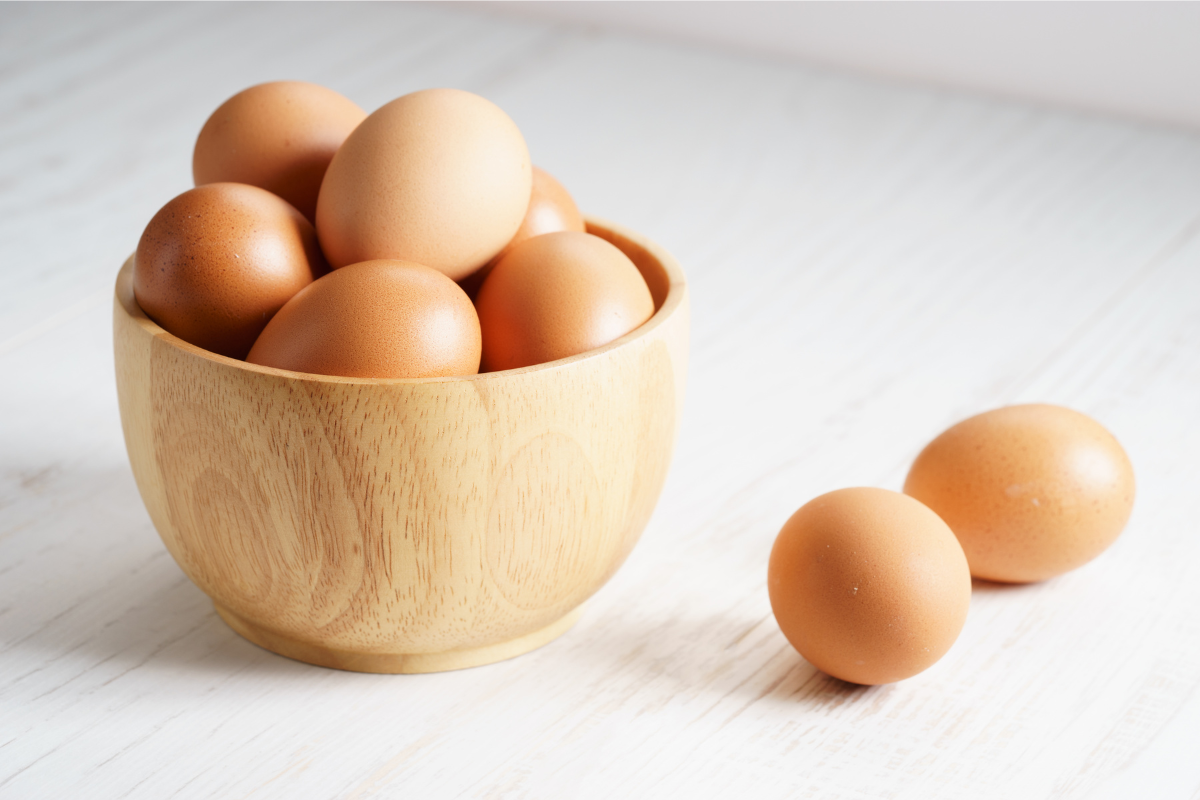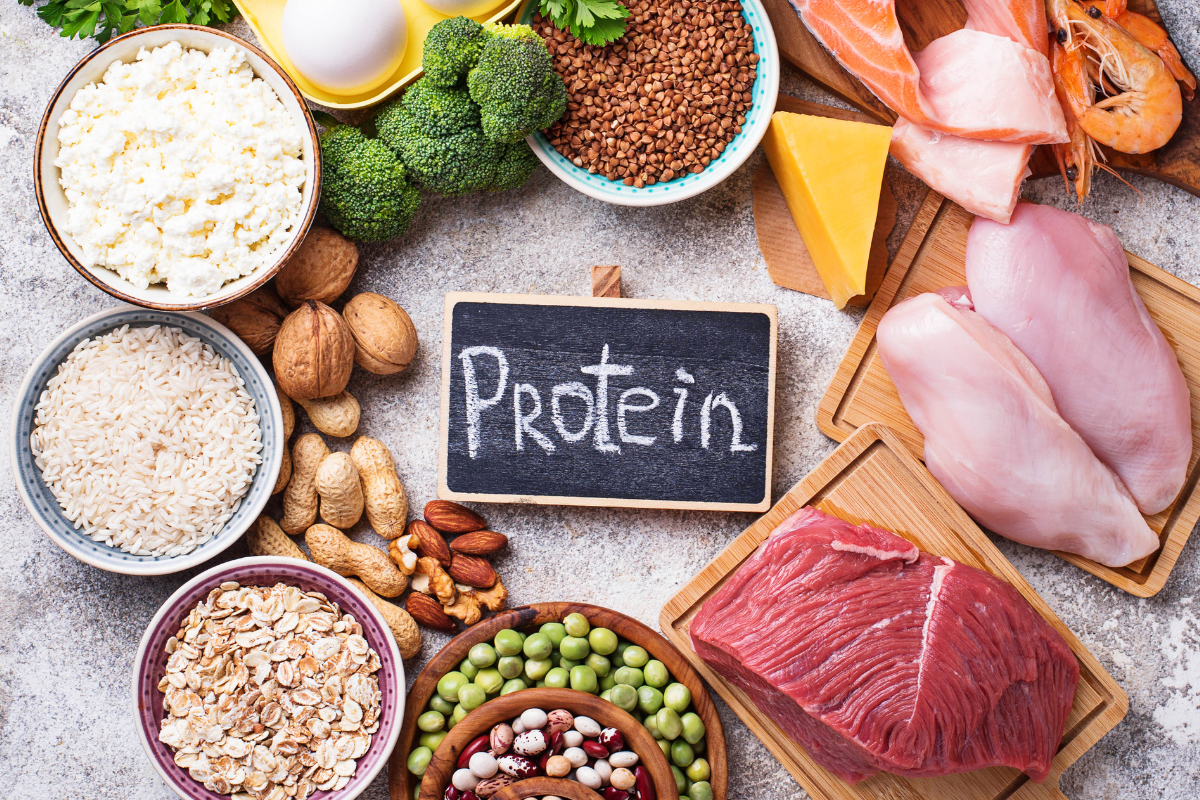The Science of Protein in Pregnancy and Fertility
In conversations about fertility and pregnancy, we often hear about folate, iron, and other crucial micronutrients—but protein sometimes takes a back seat. In reality, protein is one of the foundational building blocks for everything from hormone production to fetal growth. Whether you’re trying to conceive or already expecting, prioritizing protein may yield significant benefits for both you and your baby.
In this post, we’ll dig into why protein matters for fertility and pregnancy, explore different protein sources, and show how OVU bars fit into the bigger nutritional picture.
1. Why Protein Is Essential for Fertility
Hormone Regulation
Hormones—such as estrogen, progesterone, and luteinizing hormone—play pivotal roles in ovulation and overall reproductive function. Amino acids (the building blocks of protein) are necessary for the body to synthesize and regulate these hormones effectively. Ensuring you have an adequate and consistent protein intake can help support a more balanced hormone environment.
Key Insight: A review published in Reproductive Biology and Endocrinology suggests that certain amino acids may influence fertility by aiding hormone signaling and reducing inflammation, both of which can support egg health and ovulatory function.[1]
Egg and Embryo Development
Healthy eggs and embryos require a multitude of nutrients—including high-quality protein. Amino acids support cell growth, repair, and DNA replication. When your diet is lacking in protein, it could impede the formation and health of these cells.
2. Protein Needs During Pregnancy
Building a New Life
Once you’re pregnant, the demand for protein escalates. Your body is building the placenta, increasing blood volume, and growing a tiny human—all tasks that call for extra amino acids. Many healthcare providers recommend at least 70 grams of protein per day during pregnancy, although individual needs can vary based on factors like body size and activity level.[2]
Supporting Maternal Health
It’s not just the baby who benefits from adequate protein. Pregnant individuals need protein for muscle maintenance, tissue repair, and a healthy immune system. A shortage can lead to fatigue, slower recovery, and other complications that can hinder a comfortable pregnancy experience.
3. Quality Over Quantity: Why Protein Type Matters
Complete vs. Incomplete Proteins
-
Complete proteins contain all nine essential amino acids in adequate amounts. These are often found in animal products like meat, fish, eggs, and dairy.
-
Incomplete proteins may lack one or more essential amino acids. They’re typically plant-based proteins (beans, lentils, nuts, seeds). However, by combining different plant foods—think beans and rice—you can achieve a complete amino acid profile.
Animal Protein Sources
-
Poultry, Lean Meats: Provide high-quality protein along with iron and B vitamins.
-
Fish: Offers protein plus beneficial omega-3 fatty acids, although pregnant individuals need to be mindful of mercury content (opting for salmon, sardines, or trout is a safer bet).
-
Eggs: Contain essential amino acids, choline for brain development, and a wide spectrum of vitamins.
Plant-Based Protein Sources
-
Legumes: Beans, lentils, and peas are high in protein, fiber, and various minerals.
-
Soy Products (Tofu, Tempeh): Provide complete protein in a plant-based form.
-
Nuts and Seeds: Feature beneficial fats and some protein; great for snacking or adding to meals.
4. Protein Timing and Distribution
Spread It Out
Studies suggest that evenly distributing protein throughout the day—rather than loading up at dinner—may help the body utilize it more efficiently. For those on a fertility journey, consistent intake stabilizes blood sugar and supports hormone function.
Example:
-
Breakfast: Greek yogurt with fruit and chia seeds
-
Snack: OVU bar (10g protein)
-
Lunch: Lentil soup with whole-grain bread
-
Snack: Nut butter with apple slices
-
Dinner: Grilled chicken or tofu with roasted vegetables
5. OVU Bars: Protein for the Busy Mom-to-Be
It’s one thing to acknowledge protein’s importance; it’s another to find a sustainable way to fit it into a jam-packed day. That’s where OVU bars come in.
The OVU Edge
-
10g Protein: Sourced to help stabilize energy and support tissue repair.
-
Myo-Inositol (2g): An ingredient linked to improved insulin sensitivity and hormone balance, particularly helpful for those navigating conditions like PCOS.
-
Maca Root: Traditionally used for stamina and hormonal support, with some modern studies suggesting a positive effect on energy and mood.
-
8g Fiber: Boosts digestion and prolongs satiety—a plus for managing pregnancy cravings or balancing blood sugar while TTC.
-
2/3 Cup Vegetable Equivalencies: Ideal for sneaking extra nutrients into your day.
-
No Added Sugar: Avoids sugar crashes, which can disrupt hormones.
Why It Matters: Whether you’re on-the-go or simply need a quick, balanced snack between meals, an OVU bar helps you consistently meet your protein needs while providing other beneficial components for fertility and prenatal health.
6. Debunking Common Protein Myths
Myth #1: “High-Protein Diets Are Dangerous”
While extremely high-protein diets may strain the kidneys in certain medical conditions, moderate to moderately high protein intake—particularly from balanced, varied sources—is beneficial and often recommended during pregnancy. Always consult your healthcare provider if you have kidney issues or other specific concerns.
Myth #2: “You Only Need Animal Protein for Adequacy”
Plant-based diets can be fertile-friendly as long as you plan carefully to combine protein sources (e.g., beans and whole grains) and ensure adequate micronutrients like iron and vitamin B12.
Myth #3: “Excess Protein Makes You Gain Unwanted Weight”
Protein can actually help maintain a healthy body composition by supporting muscle mass and making you feel satiated longer. Weight gain in pregnancy is necessary and healthy for fetal development, but protein alone doesn’t cause excessive weight gain without a caloric surplus overall.
7. Practical Ways to Up Your Protein Intake
-
Power Breakfast: Start the day with eggs, Greek yogurt, or a protein shake.
-
Frequent Snacks: Keep OVU bars on hand or portion out cheese sticks, nuts, or homemade protein bites.
-
Mix It Up: Swap out refined carbs for protein-heavy foods (e.g., cauliflower rice, bean-based pasta).
-
Add to Smoothies: Boost nutrition with protein powder or silken tofu alongside fruits and leafy greens.
-
Meal Prep: Cook large batches of lean meats or beans on weekends, then use them in salads, wraps, or soups throughout the week.
8. Frequently Asked Questions
Q: How do I know if I’m getting enough protein?
A: While general guidelines exist (around 70g+ per day in pregnancy), individual needs vary. Track your intake for a few days or consult with a registered dietitian for personalized advice.
Q: Can I get enough protein if I’m mostly plant-based?
A: Yes, with mindful planning. Choose complete proteins (or complementary plant proteins) and consider supplements like B12 if you’re fully vegan.
Q: Are OVU bars safe for those with dietary restrictions?
A: OVU bars are formulated with no added sugar and include plant-based components. Always check ingredient lists for potential allergens or consult your healthcare provider if you have specific dietary restrictions.
9. Additional Resources
-
Reproductive Biology and Endocrinology. (2019). “The Role of Dietary Protein in Hormone Regulation and Fertility.”
-
The American College of Obstetricians and Gynecologists (ACOG) guidelines on Nutrition During Pregnancy.
You may also find the following organizations helpful for up-to-date research and recommendations:
-
Academy of Nutrition and Dietetics
-
Office of Dietary Supplements (NIH)
-
World Health Organization (WHO)
Author’s Note
As someone who has personally navigated fertility challenges—and dove headfirst into nutrition research along the way—I know that every bit of reliable information can bring relief and empowerment. It’s my hope that this post inspires you to explore your dietary choices with optimism and curiosity. After all, fueling your body well isn’t just about preparing for the possibility of pregnancy; it’s also about nurturing yourself in the here and now.
If you have questions or suggestions for future blog topics, feel free to reach out! The OVU community is all about shared experiences and knowledge. We’re in this together, and we can’t wait to support your healthy, hopeful journey.
(Disclaimer: This blog is for informational purposes only and does not constitute medical advice. Always consult with a healthcare professional for personalized recommendations.)






